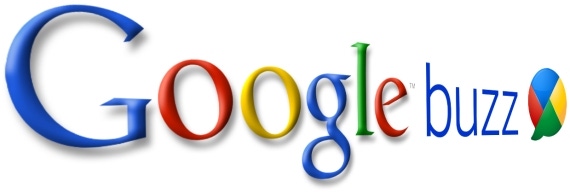As predicted, last week Google launched Buzz, a Gmail-native social network built to potentially compete with Facebook and Twitter. Unfortunately for the search giant, some excited users seem to have turned sour on Buzz because Google is still sorting out the systems' privacy and usability features. Here are some perspectives.
February 16, 2010

 As predicted, last week Google launched Buzz, a Gmail-native social network built to potentially compete with Facebook and Twitter. Unfortunately for the search giant, some excited users seem to have turned sour on Buzz because Google is still sorting out the systems’ privacy and usability features. Here are some perspectives.
As predicted, last week Google launched Buzz, a Gmail-native social network built to potentially compete with Facebook and Twitter. Unfortunately for the search giant, some excited users seem to have turned sour on Buzz because Google is still sorting out the systems’ privacy and usability features. Here are some perspectives.
To Buzz’s credit, it’s a snap to syndicate activity on any other Google-owned site like YouTube, Picasa, or Google Reader to your public feed. It can even automatically grab and repost your Twitter feed. This means that when I first clicked the “Buzz” link on the Gmail sidebar, my page was already full of content from my friends — which is actually one of its main problems.
The biggest lambasting Google has received over Buzz is its privacy settings (or lack thereof). When Buzz launched, all Gmail users were on the grid by default, and were automatically set to follow their closest friends’ updates. The issue was that it then made those contacts viewable to anyone who stumbled on your Buzz profile.
As far as usability goes, many users were put off by the fact that comments and replies to Buzzed items are copied to the Gmail inbox also by default, and it can quickly overwhelm your unread items if you don’t tweak your settings. And while this isn’t strictly Google’s fault, so many of my friends and colleagues are so firmly entrenched in Buzz’s competitors that my entire feed consists of syndicated content from elsewhere.
Moreover, clicking “Turn off Buzz” at the bottom of the Gmail window just removes it from your view without actually eliminating your presence on their social network. To Google’s credit, they’ve been rolling out changes to Buzz that makes the privacy settings more obvious, but a lot of goodwill has already been lost.
Google has announced that Buzz is coming to Google Apps Enterprise Edition, their resellable cloud collaboration and productivity suite, “within a few months.” A lot can happen between now and then, and Google is well-known for tweaking their products, constantly fine-tuning to perfection. But as it stands now, I’m wondering if any of Google’s channel partners actually want to deploy Buzz.
All this talk of social networking makes it as good a time as any to announce that you can now follow me on Twitter. Drop me an @reply and say “hi.”
About the Author(s)
You May Also Like


